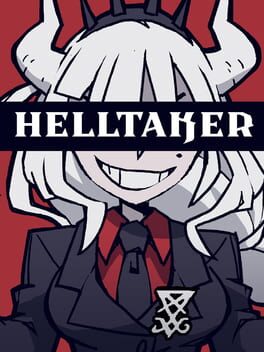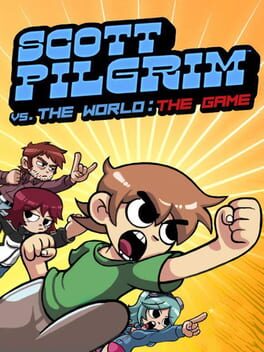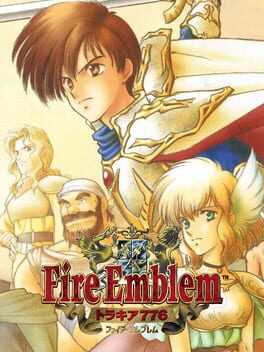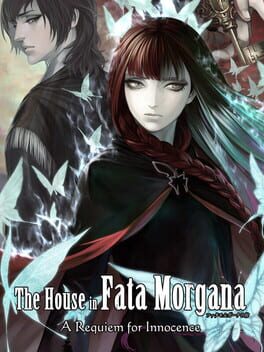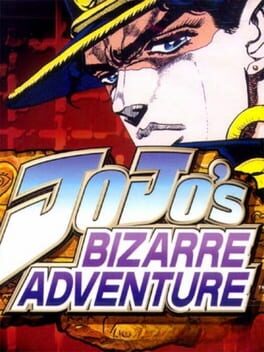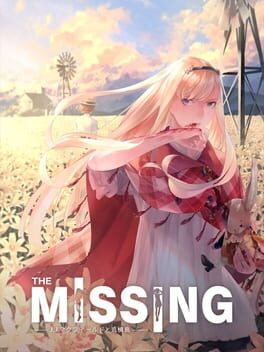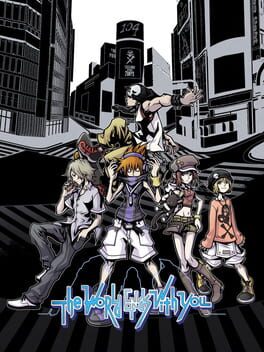2020
2019
2017
2011
2012
This game and J.J.'s expeirences made me reflect on my own transness in a very personal way that I’m struggling to put down in an appropriate way for a game logging website. But what I’m happy to say about it is that it shows how being trans can be painful and scary, especially before coming out, but in the last stretch it makes the perfect move in also showing just how wonderful and fun it really can be.
After 3 years of being out, I’m subjected to little pain because of my own transness and feel happy that I am who I am just about every day. I want to be proudly, vocally trans—to not have my status as “cis-passing” overshadow my identity. And I’ve come to view being trans as a wonderful experience to live through. So while I did struggle to play through this game with how janky and awful it was to control, I’m so glad it’s powerfully uplifting in the end, because I want the struggles of trans people acknowledged, but I want living as trans to viewed as a happy thing just as much.
After 3 years of being out, I’m subjected to little pain because of my own transness and feel happy that I am who I am just about every day. I want to be proudly, vocally trans—to not have my status as “cis-passing” overshadow my identity. And I’ve come to view being trans as a wonderful experience to live through. So while I did struggle to play through this game with how janky and awful it was to control, I’m so glad it’s powerfully uplifting in the end, because I want the struggles of trans people acknowledged, but I want living as trans to viewed as a happy thing just as much.
Really love how this game explores the inherent difficulty in maintaining interpersonal relationships and how they can affect your own growth as a person but I’m surprised how little discussion around it focuses on how it explores the ways in which our greater environment influence us. I’m here for it, though!
Joshua’s “Welcome to capitalism, Neku” is a bit of a memefied line—it’s fun and used to make very surface level critiques of capitalism online, but when you get right down to it this game is super anti-capitalist at its core. Shibuya, the ever-changing hub of modern youth and commerce, is a space framed as, well, exhausting. Characters of the world move through rapidly evolving micro-worlds where they’re forced to adapt to changes in brands and stores that serve as familiar landscapes. You’re able to change the way these cultural trends sway yourself, but rarely without magical UG powers, and rarely in a way that changes anything but putting yourself on top. Something else that Joshua says is that each section of Shibuya is its own little world, and that’s very true—as the player navigates the spaces of Shibuya, they see all the different subcultures of people inhabiting them and making them work the way they do. And when you break it down, see that every section of Shibuya, one part of one city in one country in the world, operates by its own rules and makes you play to the game of its trends and commerce, it truly seems like a capitalist hellscape.
That’s not a particularly enlightening path for the game to go down, though. Neku and the rest of the cast have to navigate this world, and it wouldn’t be very fun for them to just sit down by the end and say “yeah capitalism sucks, we’re all stuck here and we’re gonna rot.” Not in a story about them all getting something so wonderful as a second chance at life. Certainly, the way that their environment forces them to live takes an emotional toll on them—Neku is rushed through relationships week by week as a part of the Reapers’ game, Shiki has to balance her love of fashion with a struggle to keep up with trends in her work and appearance (absolutely more evidence that she is trans than cis, by the way), and even villains like Kitanji are exhausted by the spaced of Shibuya, finding it easier to fit every person into one state of mind. These thoughts and all the characters’ struggles don’t come from thin air, they are very much influenced by the space they live in. Yet, as they develop throughout the game and go through very small changes in mindset, it becomes very possible to put a positive spin on that environment.
With the game (appropriately) beating over your head how important human connection is despite the problems that arise because of it, it makes sense to end things on a positive note. All these micro-worlds of Shibuya and the spaces beyond it are important and interesting because of the people who inhabit them, capitalism be damned. Their subcultures make the world a great place to be in, as long as you’re willing to reach out and explore it. When Neku’s learned to love Shibuya by the end of the game, and not because he’s following the mantra of a mysterious influencer anymore—he’s learned to find ways to appreciate the people in it, and even become friends with some of them. Obviously, this comes about because of his personal growth, but I think there is a subconscious understanding that he knows his environment influences him and is living and growing with that fact recognized, taking the way the strict control it has over him. In the end, the game (or at least the secret reports), spell out for you that human connection is how we live under capitalism. It’s not necessarily a call for revolution or a plan to upheave the whole system, but the way to “ride high upon the waves of the ever-changing world.” I love this game to pieces in a lot of ways, but from the moment Joshua compared the spaces of Shibuya to human minds, my geography major brain got whirring about all this. I think it’s a wonderful way to explore why our interpersonal connections are so important in the world beyond ourselves. We link together, enact change, and begin to understand more about ourselves and the world to make it better for everyone to live in. Perfect game for me.
Joshua’s “Welcome to capitalism, Neku” is a bit of a memefied line—it’s fun and used to make very surface level critiques of capitalism online, but when you get right down to it this game is super anti-capitalist at its core. Shibuya, the ever-changing hub of modern youth and commerce, is a space framed as, well, exhausting. Characters of the world move through rapidly evolving micro-worlds where they’re forced to adapt to changes in brands and stores that serve as familiar landscapes. You’re able to change the way these cultural trends sway yourself, but rarely without magical UG powers, and rarely in a way that changes anything but putting yourself on top. Something else that Joshua says is that each section of Shibuya is its own little world, and that’s very true—as the player navigates the spaces of Shibuya, they see all the different subcultures of people inhabiting them and making them work the way they do. And when you break it down, see that every section of Shibuya, one part of one city in one country in the world, operates by its own rules and makes you play to the game of its trends and commerce, it truly seems like a capitalist hellscape.
That’s not a particularly enlightening path for the game to go down, though. Neku and the rest of the cast have to navigate this world, and it wouldn’t be very fun for them to just sit down by the end and say “yeah capitalism sucks, we’re all stuck here and we’re gonna rot.” Not in a story about them all getting something so wonderful as a second chance at life. Certainly, the way that their environment forces them to live takes an emotional toll on them—Neku is rushed through relationships week by week as a part of the Reapers’ game, Shiki has to balance her love of fashion with a struggle to keep up with trends in her work and appearance (absolutely more evidence that she is trans than cis, by the way), and even villains like Kitanji are exhausted by the spaced of Shibuya, finding it easier to fit every person into one state of mind. These thoughts and all the characters’ struggles don’t come from thin air, they are very much influenced by the space they live in. Yet, as they develop throughout the game and go through very small changes in mindset, it becomes very possible to put a positive spin on that environment.
With the game (appropriately) beating over your head how important human connection is despite the problems that arise because of it, it makes sense to end things on a positive note. All these micro-worlds of Shibuya and the spaces beyond it are important and interesting because of the people who inhabit them, capitalism be damned. Their subcultures make the world a great place to be in, as long as you’re willing to reach out and explore it. When Neku’s learned to love Shibuya by the end of the game, and not because he’s following the mantra of a mysterious influencer anymore—he’s learned to find ways to appreciate the people in it, and even become friends with some of them. Obviously, this comes about because of his personal growth, but I think there is a subconscious understanding that he knows his environment influences him and is living and growing with that fact recognized, taking the way the strict control it has over him. In the end, the game (or at least the secret reports), spell out for you that human connection is how we live under capitalism. It’s not necessarily a call for revolution or a plan to upheave the whole system, but the way to “ride high upon the waves of the ever-changing world.” I love this game to pieces in a lot of ways, but from the moment Joshua compared the spaces of Shibuya to human minds, my geography major brain got whirring about all this. I think it’s a wonderful way to explore why our interpersonal connections are so important in the world beyond ourselves. We link together, enact change, and begin to understand more about ourselves and the world to make it better for everyone to live in. Perfect game for me.
